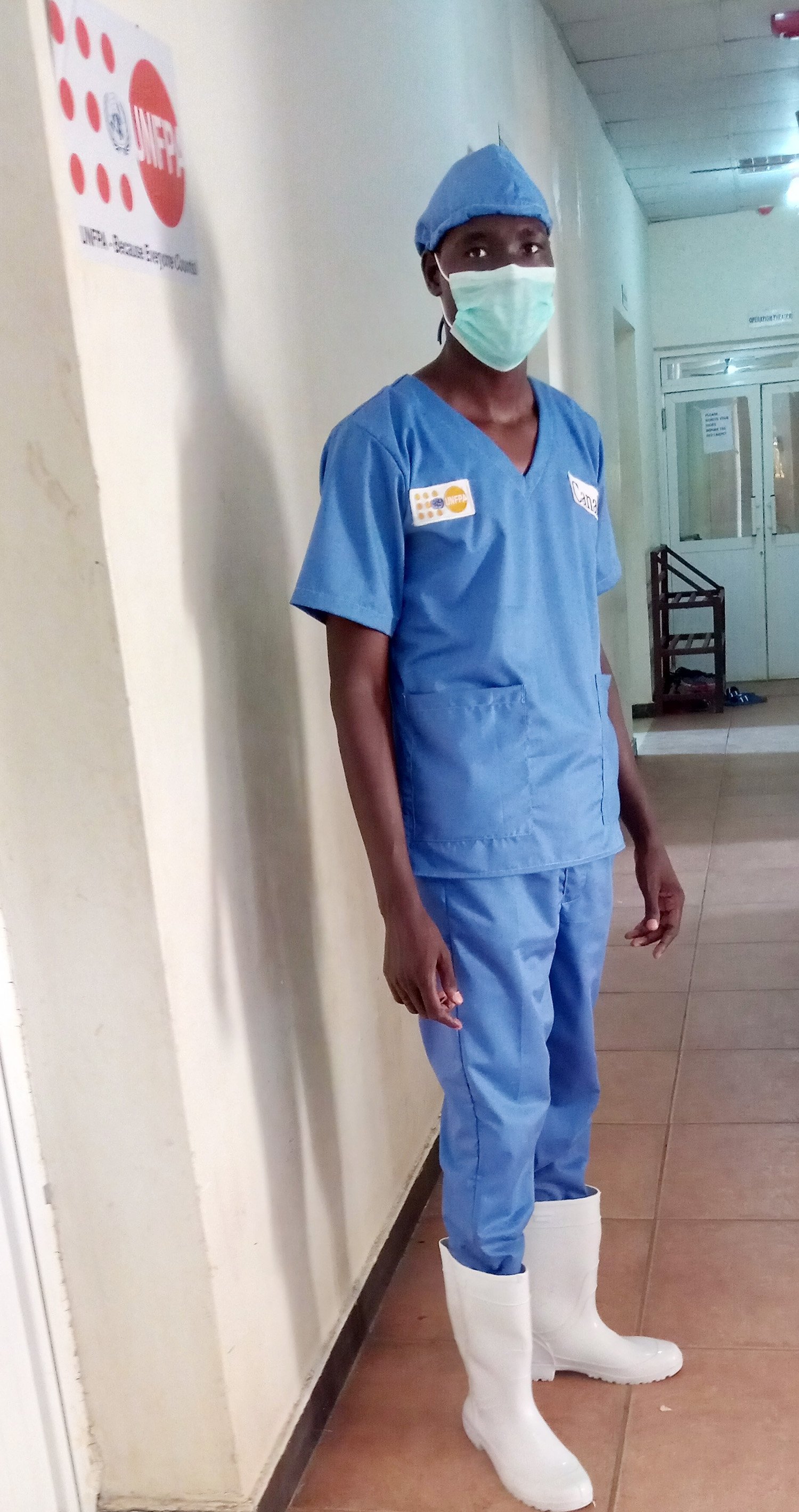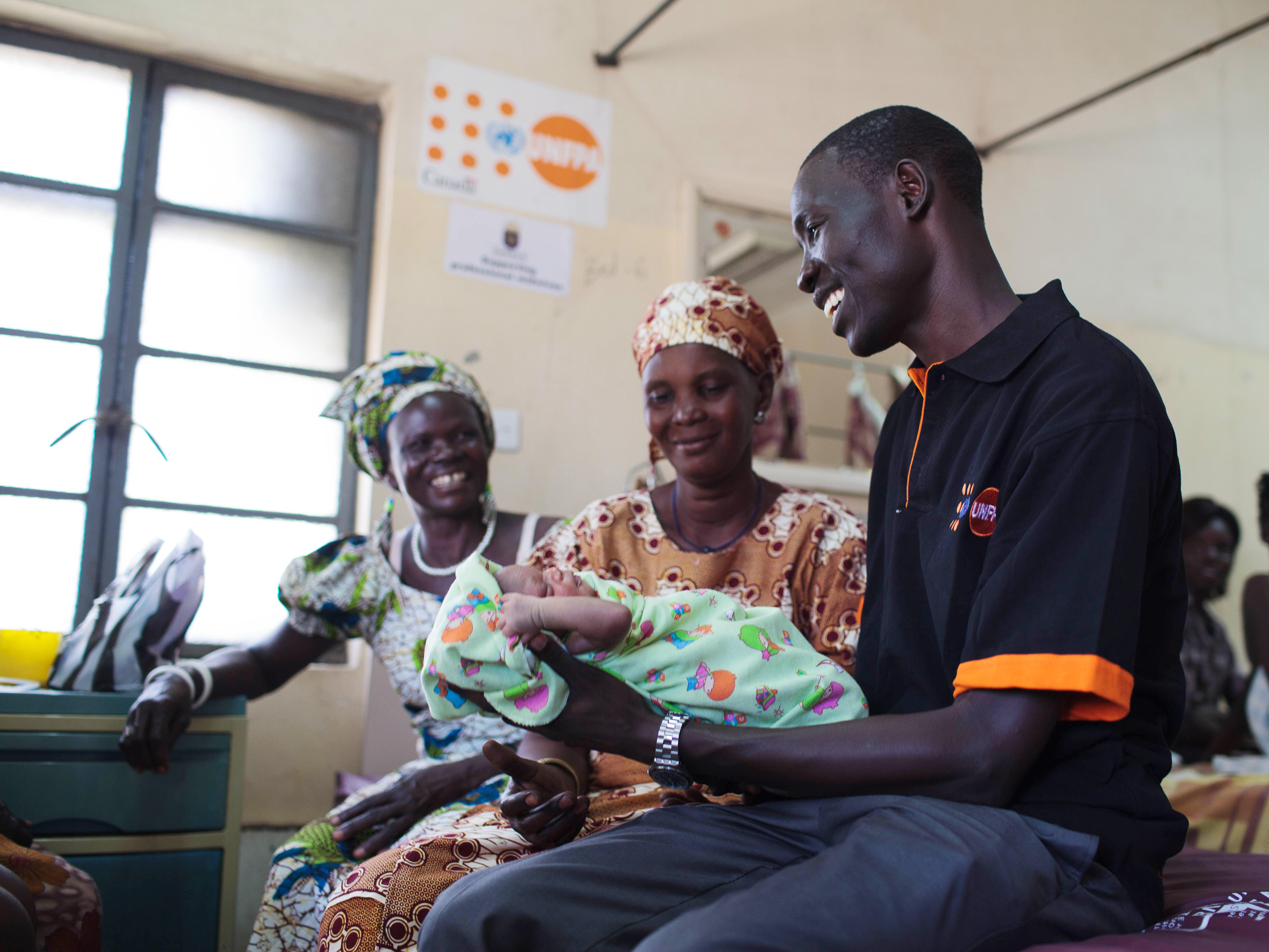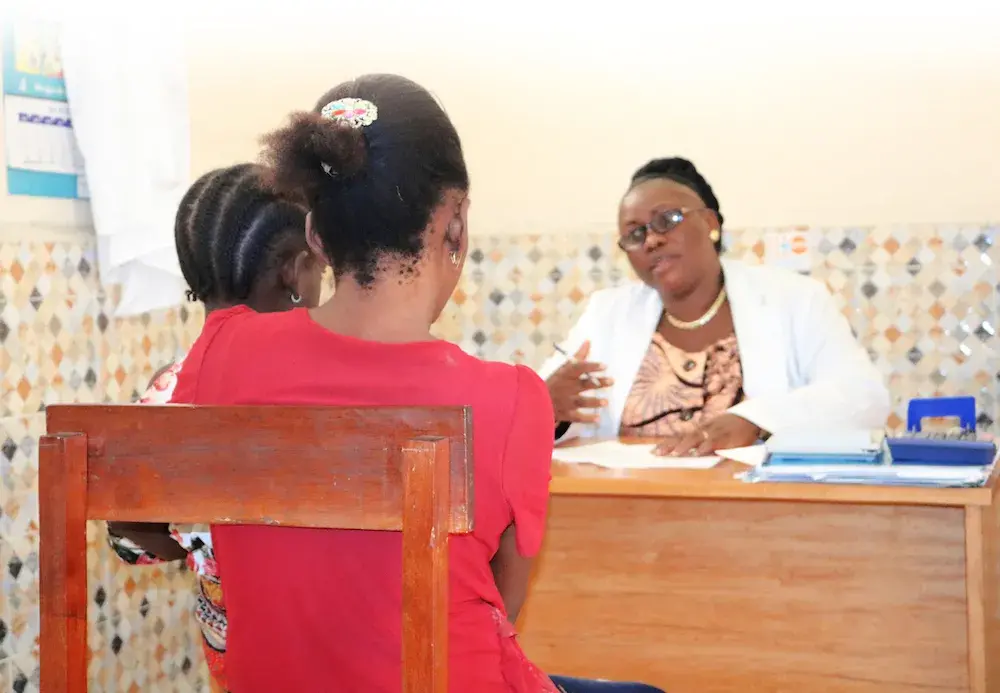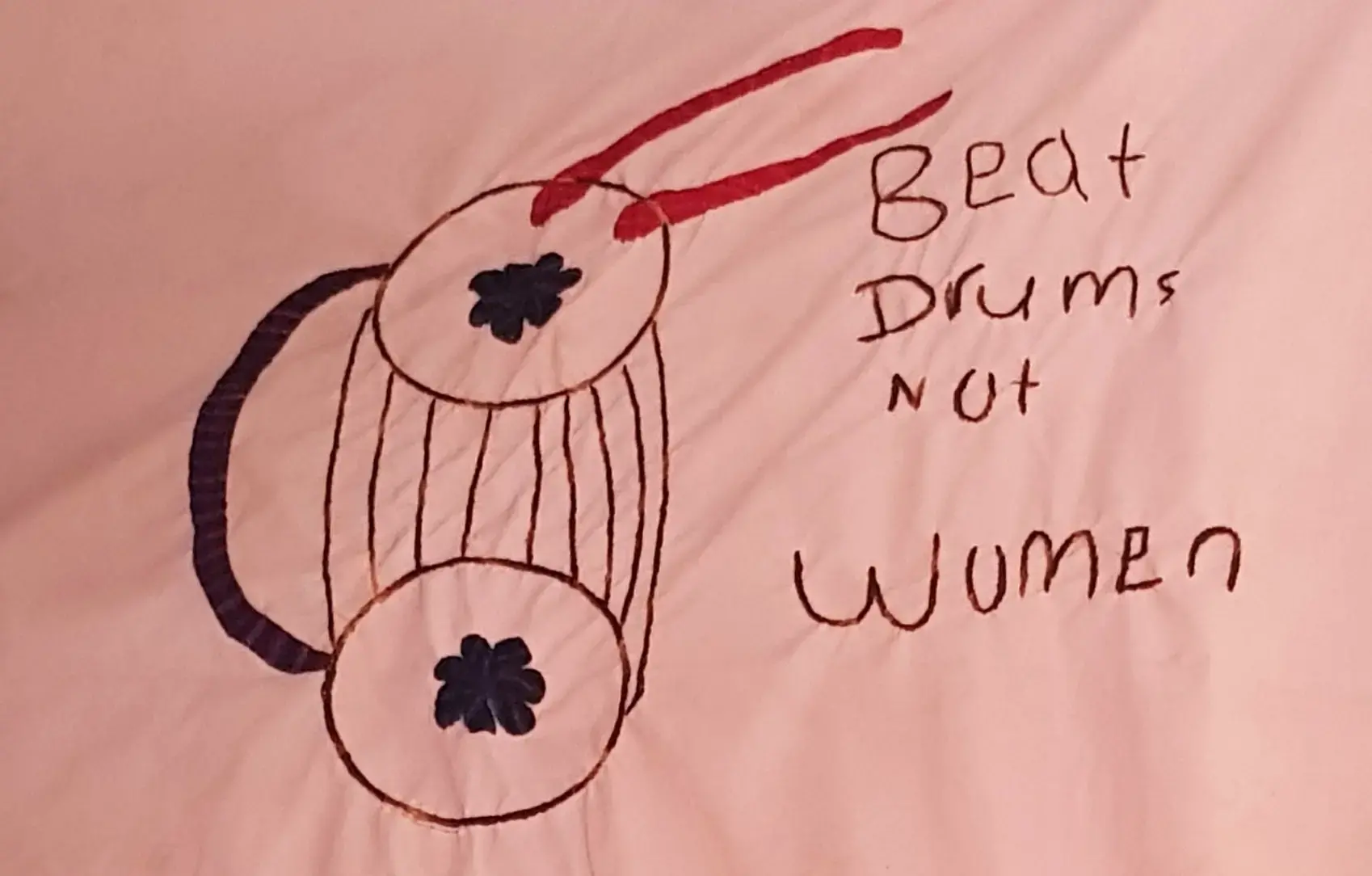Torit, South Sudan – “In a profession that has historically always placed patients’ needs first, the degree of sacrifice being demanded of us now is unprecedented.”
With the first cases of the new coronavirus disease (COVID-19) confirmed in South Sudan in early April, midwife Justine Mangwi is concerned about protecting mothers and their newborns from being infected both in their community and in the health facility.
Aware of the risk of contracting COVID-19 when they leave their homes, especially since one of the confirmed cases is from Torit, expectant mothers are already expressing preference to deliver at home instead of the hospital.
“I tell them that switching their birth plan could be dangerous. A home birth environment is just as susceptible to the spread of the coronavirus,” Mr. Mangwi points out. “Pandemic or no pandemic, the hospital has a team and the equipment available to save lives in case of pregnancy or childbirth complications.”
The midwife has a reason to be concerned. South Sudan has a maternal mortality ratio of 789 deaths per 100,000 live births – one of the highest in the world. One of the contributing factors to the country’s high maternal deaths is the low skilled birth attendance. Only 15 per cent of women deliver assisted by a trained birth attendant such as a midwife.
South Sudan remained COVID-19 free until early April when the first case was confirmed. The virus now adds up to the many factors that could cause pregnancy and childbirth complications.
UNFPA, the United Nations Population Fund, is working with the Ministry of Health to put in place measures to ensure that maternal health and other sexual and reproductive health services are safeguarded to prevent deaths and illnesses especially among pregnant and breastfeeding women and their newborns, as well as protection for frontline health workers like midwives.
The plan includes recruiting additional midwives to support the anticipated surge in demand for healthcare.
Mr. Mangwi is one of the 26 midwives deployed by UNFPA to various hospitals under the Strengthening Midwifery Services Project to provide sexual and reproductive health services, as well as mentor midwifery students at Health Science Institutes. The project, supported by the governments of Canada and Sweden, seeks to fill the huge need for skilled health personnel in South Sudan. At its independence in 2011, the country only had eight qualified midwives. Since the midwifery project started in 2012, the number of trained midwives has grown to more than 800 today.

Mr. Mangwi has been preparing for his critical role in the COVID-19 response. He has taken online trainings and is participating in virtual meetings on the World Health Organization (WHO) protocols on COVID-19 for health workers. At Torit Hospital where he works, he is part of the Rapid Response Team taking on the role of a risk communicator.
There’s more that needs to be done. He says government must provide equipment such as ventilators for the hospitals and personal protective equipment for the frontline health workers, asserting that the frontliners will be motivated and confident when they have the skills and they feel that they are supported.
“This situation calls for everyone to show commitment to help prevent our country from being wiped out by this merciless pandemic. The soldiers have fought their fight for our independence. Now, it is the turn of health workers to fight the coronavirus war for our country,” he utters.
Mr. Mangwi maintains a mindset of resilience as he stands ready to serve at the frontlines of the COVID-19 response, saying: “We have been through difficult times and I believe we shall overcome this. I pray each day for good health and a long life so I can tell some of my stories to my children.”
-Arlene Alano





